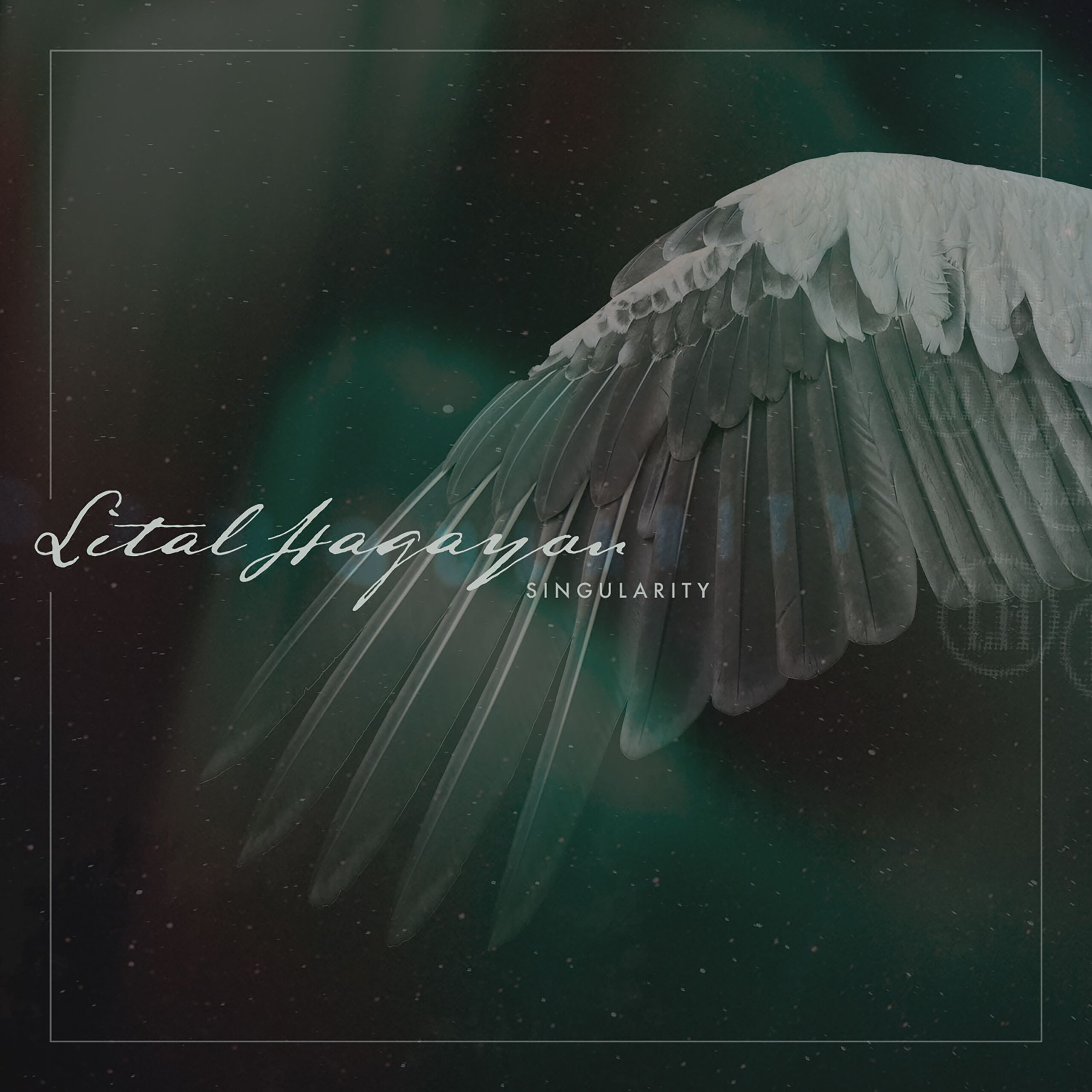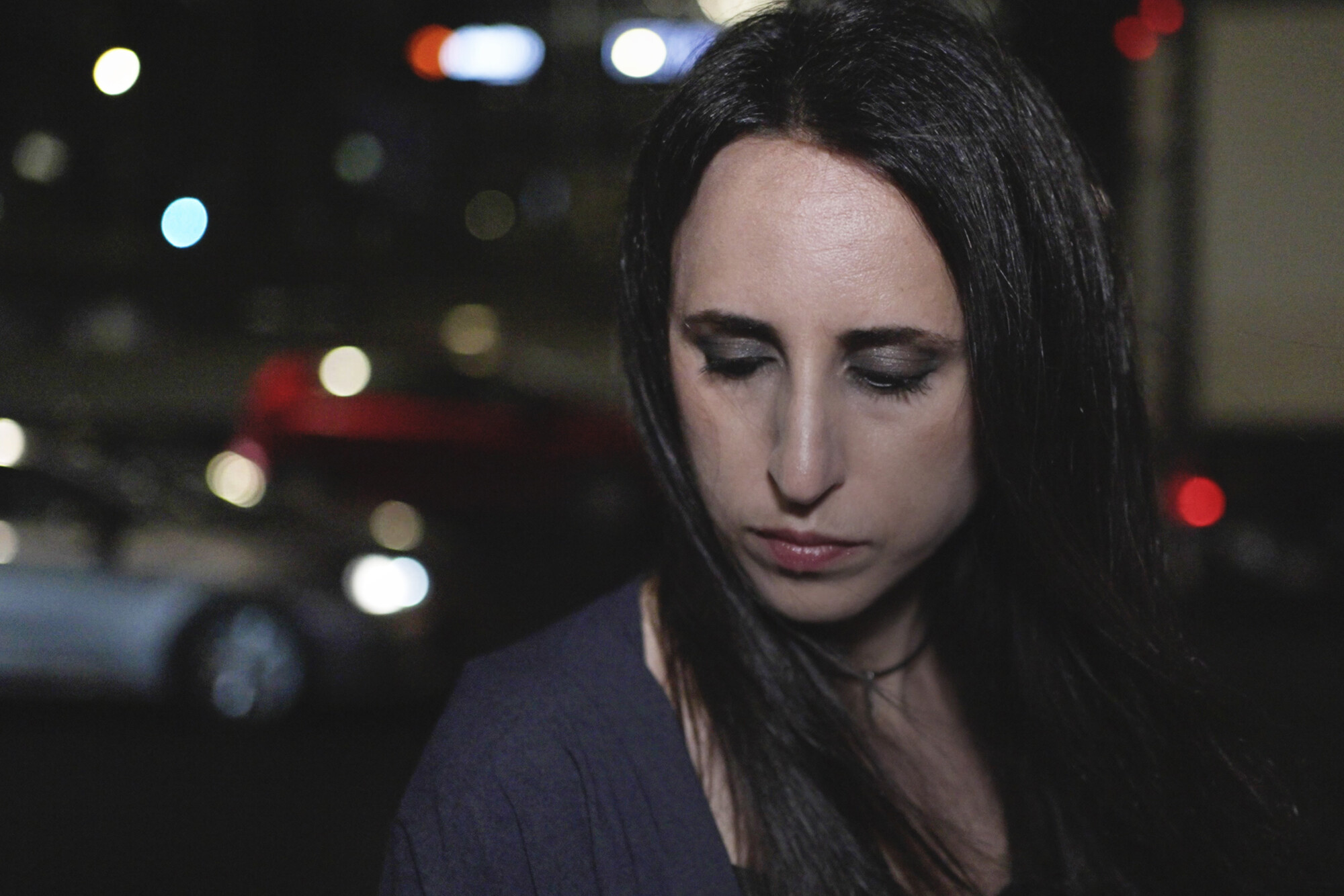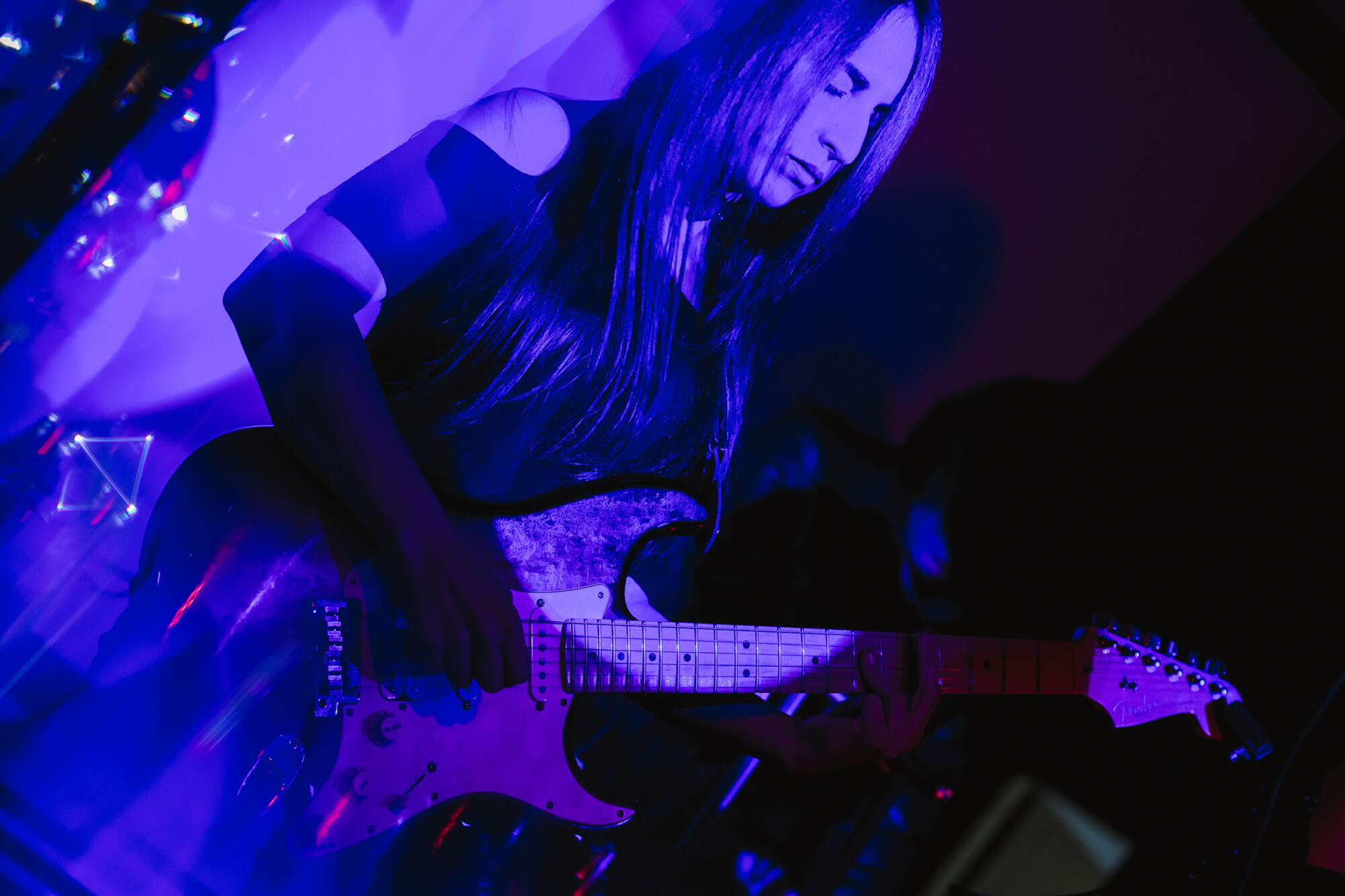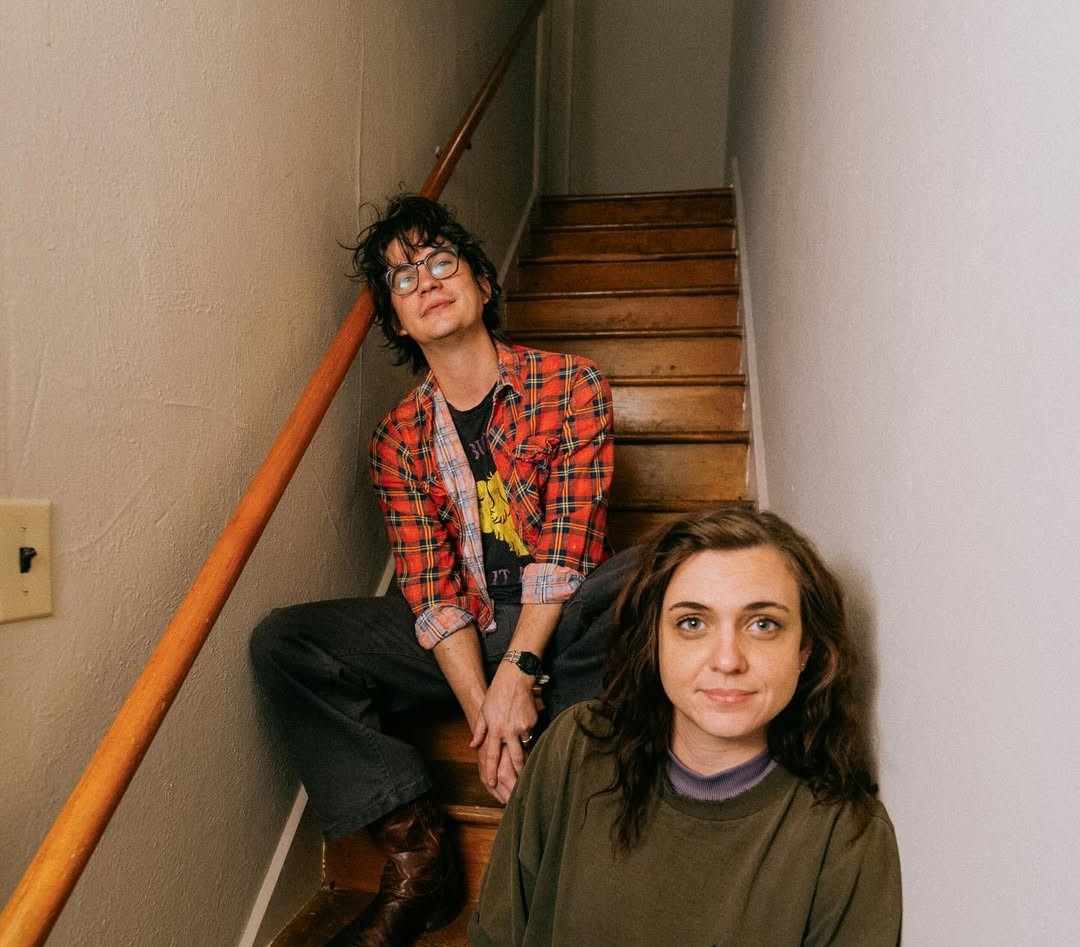Lital Hagayan | Interview | New Single, ‘Singularity’
In ‘Singularity,’ Hagayan pens a vast, cosmic book of life that captures the highs and lows that existence has to offer.
In ‘Singularity,’ Hagayan pens a vast, cosmic book of life that captures the highs and lows that existence has to offer.
Meet Lital Hagayan: an Israeli songwriter, instrumentalist, and sound engineer who has been influenced by a confluence of genres, including shoegaze, progressive, dream pop, alt-rock, and psychedelia. But Hagayan doesn’t just write and produce music- She takes our ears on a journey to the Akashic records: encompassing the darkest moments of the human condition, such as craving and regret, contrasted by sunny, loving nostalgia.
Her fantastical, soulful sound reminds me of a combination of the cavernous emotions of topographies, the colorful world ambiance of Shpongle, and the placid dystopian plucking of Soap&Skin. But ultimately, her sound is heartfelt and one of a kind, with lyrics that are not mere words, but rather philosophical quandaries we’re left to interpret within the context of our own life.
Track 1 ‘Eternity’ surprises us with an old-school folk mix-matched with trance. Instrumentally, it is a pleasant marriage of piano and guitar. But it is also an in-your-face reminder that time only goes one way- what a bittersweet way to start an album! But perhaps, this is the best way to write a love song. The combination of synths, emotive backup vocals, gourmand bass, and a bright citrusy piano create an inexplicable perfume. It is full of washes of unconditional love. The opening tune then phases out like an old record, suggesting a time-lapse or rewind as we make our way to “Waiting”.
Track 2 has an unexpected harmonic progression, making us toggle between tense to feel-good, past and present. The echoing bass drum painted a melancholic picture in my mind: A woman in a flowing dress walking up a set of basalt stairs in the middle of the woods…and then collapsing. As the instruments swell into an epic peak, it becomes clear that it isn’t just wanting and waiting, but craving someone.
Track 3, ‘Monsters in Your Head’ on the other hand, is a moving, progressive rock-feeling song with compelling impetus.
“I can only pray for you
That someday you will heal
From all those monsters
Who walks inside your head
And be yourself again
Cause now it feels like
We lost you…
I gave you all of me”
The modulation suggests an internal struggle. It is like constantly looking at the dark facets of a crystal: each time the tonality changes, the item rotates… you feel and see something new.
The next part of the album is a much more loving continuation of track 3- treating us to ‘You Are My’ and ‘Like I Remember You’. But this armor is not without suffering, with lines like “You told me you love me and leave me again..” stacked hopefully against “I know we’re gonna get through this.” There is a sense of levity, then it changes, over and over again- just like life does.
Lital Hagayan uses especially rich language In track 5, when she paints a detailed picture of the leaves outside, and the pain in her heart. They will find their way back to themselves- just like how she remembers them. But is this painful denial or true hope?
Track 6 changes the vibes with a cover of Fleetwood Macs’ ‘Songbird,’ which begins with a forest of vocal harmonies and another dose of folky sound. Track 7 ‘When Words Been Said’ changes emotional texture again. It feels so epic that it could be the theme song to a time-travel drama. It showcases dualism by alternating between a trance-like sound, and a rock-ballad chorus. Hayagan’s line “When words we said were left behind” reminds us that after a relationship has ended, that is all that is left- Words. These words are both everything and nothing at all. Later, the artist takes us to another dimension with a florid fantastical sound. As the song comes closer to a close, it becomes more mournful, with just a hint of bitterness.
Track 8 ‘Stay’ hints at Fleetwood Mac’s ‘Songbird’ again, but with an epic minor twist, and then ‘Let Me See You’ is a dark arpeggiation, a remembrance…that inexplicable feeling of when you look at yourself in the mirror and see a past lover staring back at you. The Penultimate track ‘Alone’ is a continuation of the last track and all the painful feelings that come with it.

Finally ‘Miss You’ starts simply, and feels light and acoustic…the strings swell, and the reverberated birds sing their song- but Singularity never resolves.
“I call you
I call your name
But no one answers.”
“I’m from Tel Aviv, Israel. My sound is a hybrid between shoegaze, ambient and progressive rock. In my youth, I listened to a lot of progressive rock, among other things a lot of Porcupine Tree, and I fell in love with the harmonic and rhythmic changes. Since I really like atmospheric and ambient music, I’m also in love with pools of reverb, a dreamy atmosphere, so this is also reflected in my sound. In this particular album, there is also kind of a dark sound, or maybe sadness, since it was written during a very dark and painful time.” -Lital Hagayan

What does the feathered wing on your album art represent to you?
Lital Hagayan: That’s tough to answer because to me, it has more than one meaning. The idea first came from the name of the person I’m writing about in this album. This person was very close to me, and I cannot get into details, and something just happened to him.
I needed to handle this, so making this album was my way of doing so. This is the first reason I guess I chose to have a wing on the cover. It’s related to his name. But since it took me about 3 years to have the strength to release this album, I feel that during these years I did kind of release myself from this huge pain I had in me. The wing also related to the fact that I was able to start my life from scratch and somehow to move on and handle his loss in some way.
What was the first instrument you learned to play and why did you gravitate towards it?
It’s funny because my first instrument was keyboard, and then piano. I was 8 years old, but I didn’t feel connected so I didn’t keep on playing on the piano. My parents didn’t have the money to buy a real piano, so all the years I did learn piano, I was practicing on an old vintage organ.
At the age of 11 or 12, I took my brother’s classic guitar and started to learn by myself through a book my brother had. I started to play chords and taught myself to strum, I actually copied the strumming from songs I liked, and at some point I learned how to read tabs, so I was able to learn playing more and more songs.
Back in those days, the internet was very expensive and slow, so connecting to the internet was a big issue. Each time my parents allowed me to connect to the internet, I downloaded more and more tabs. When I got into high school at age 16, I enrolled in a music class. When I finished high school and army service (here in Israel, we have to do army service after high school), I luckily got to know the right people in the music industry and that was how I started my path as a music producer and sound engineer.
What kind of music did you grow up listening to as a child?
I grew up with many genres; including classical music, 90’s pop, progressive rock, and shoegaze. I think my main influence is mostly progressive rock. I do have a big connection to shoegaze music for its ambient atmosphere. I also have been influenced by classic 80’s; that’s where all the synths come from, and some tracks have the electronic beat. I think in general, I’m an open-minded person with genres. As long as the music touched me, I could find myself getting into it and listening on repeat.
What is your favorite “hack” to use as a sound and mix engineer, and did you utilize this for your new album?
I think my main “hack” is the reverb manipulation. I used it on my album and in every music production and mix I’m doing (as long as it goes with my kind of genre). I manipulate reverbs with vocals and guitars. I can also manipulate reverbs on drums and on ‘Songbird’ I also manipulate fx with the bass.
Because I do feel that this is like my “default sound,” I also can manipulate sources with delay. If it’s a spring delay or dotted ⅛ delay with ping pong left-right panning. I just love it!
Do you have a favorite poem?
Even if I do, you would not know it because most of the poems I’ve read are in Hebrew. But I do LOVE the lyrics of the song ‘Songbird’ by Fleetwood Mac. That’s why I decided to make my own version of that song.
If you could co-write a song with any other musician, who would it be and why?
Steven Wilson. As a teenager and into my adult life, I was listening a lot to his project, Porcupine Tree, which has a big influence on me. I truly believe that if he listens to my album, he will definitely feel connected genre wise.
And I do believe it would be an amazing experience to work with him, but as long as he works with Pro Tools (haha, just kidding).
What is the instrument in the intro to ‘When Words Been Said’- Is it a reverberated cello, or something else?
It is a mix of synths that doubles an electric guitar with an EBow. It repeats on the second and third verses.
Headline photo: Alon Levin
Lital Hagayan Facebook / Instagram / Bandcamp / YouTube




